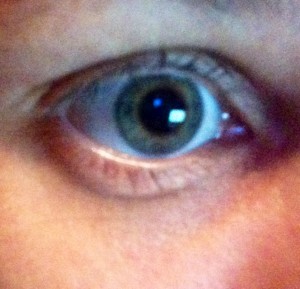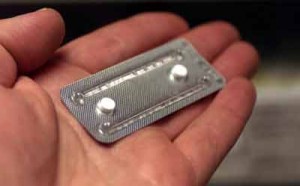Many people are unclear as to what Erectile Dysfunction (ED) actually is, despite those really ridiculous Cialis and Viagra commercials on TV (which can be horribly awkward to watch in mixed company at times!!) ED affects between 15 and 30 million men in the US and approximately 22.3% of all office visits to HCP’s are for ED. It is something that many men are embarrassed about and feel unable to speak to their partner about, and it can cause huge rifts in relationships. It is important to know that signs and talk to your partner about it, it is a physical issue that is normal, and totally fixable, so go to the doctor together and make it a couple problem, and don’t let your partner suffer and feel badly alone!
What exactly is the definition of ED?
It’s the inability to maintain an erection that is firm enough to have sex, on an ongoing basis, along with trouble getting an erection, difficulty maintaining an erection, and/or a reduced sexual desire. If you have any of these symptoms, especially if you have diabetes or heart disease, you should go see your HCP and talk to them about it, your options, and to find out what might be going on with your body. Don’t let it get too far that your partner might get upset or think that they are the one causing the problem…be open about it and go to see your HCP.
 What are the causes?
What are the causes?
There are SO MANY possible causes of ED, in which some are physical, mental, and a combination of the two. Some physical causes are: heart disease, atherosclerosis, high blood pressure, diabetes, obesity, metabolic syndrome, Parkinson’s disease, Multiple sclerosis, low testosterone, Peyronies disease (a build up of scar tissue in the penis), tobacco use, alcohol (alcoholism), substance abuse, pelvic/spinal cord surgery, enlarged prostate, and prostate cancer. So, obviously it goes from being something that is easily fixed, to things that are more serious. As far as psychological issues: stress, depression, anxiety, fatigue, and relationship issues can all cause ED. Another psychological reason that many men have a form of ED, in this current society, is due to the inability to get their partner pregnant; we have a society wrought with infertility and it can case serious relationship problems on many levels. As well, many medications that your HCP might put you on for various health issues, can also cause ED.
Before you go to your HCP appt:
Write down symptoms that you have had even including things that you might think unrelated to ED. Also, write down any life changes going on, including anything that might be causing relationship stress. An update list of current prescribed and over the counter medications are always important to bring to every appointment, but especially to an appointment regarding ED. Try to bring your partner to your appt and both of you talk before you go and both write down list of questions both separately and together.
What might happen at/after your appt?
A physical exam, which is standard at all appointments, but your HCP will inspect your penis, testicles, and check for nerve feelings. Most likely you will have blood drawn to assess your risk of heart disease, diabetes, cholesterol, and testosterone levels. A urinalysis may be performed to also look at your risk of diabetes, etc. An ultrasound may be done to look at blood flow to your penis, it uses a plastic probe on the outside of your penis to project a video of the current blood flow (a non invasive exam). They also might have you go home and perform an overnight erection tests; many men have erections at night during sleep, and have no idea that they had an erection, if the test is positive, then the reason you have ED is psychological. What they will ask you to do is to put a piece of tape that they will give you (it is easily split) around your penis, and if you wake up in the morning and the tape it split open, you’ve had an erection.
How do we treat it?
You can take oral pills like Viagra, Cialis, and levitra which are medications that enhance your bodies natural nitric oxide levels which helps muscles relax and allows more blood flow to your penis, allowing for a stronger erection. You may need to change doses and change times that you take before getting an erection. You need to talk to your HCP to take these drugs if you also take any nitrate drugs like nitroglycerin, Imdur, or Isosorbide because you can have too much of a build up of nitrates in your blood. Also be careful with blood thinners and alpha blockers (for enlarged prostate). Your HCP will have to discuss using medications if you have had a stroke, have either low blood pressure or uncontrolled high blood pressure, heart disease or heart failure, and/or uncontrolled diabetes.
Other medication options:
Alprostadil injections: a small needle is inserted in the base or side of the penis and you inject the medication, due to the small size of the needle there is usually little to no pain, and you can get an erection within 5-20 minutes and the erection usually lasts around an hour.
Alprostadil penis suppository: Using a special applicator, you insert a small suppository 2 inches up the inside of the urethra. The side effects can be pain, bleeding from the urethra, dizziness, and can cause a fibrous build up inside your penis.
Testosterone replacement: if you have low testosterone levels, oral supplements can help to increase your levels and ability to maintain/obtain an erection.
Other options:
Penis pumps: a hallow tube with a hand or battery-powered pump, you put your penis inside, pump out the extra air, which causes blood to flow to the penis and cause an erection, you need to put a tension ring on the base of your penis, then remove the pump. The erection usually lasts long enough to have sex, then remove the tension ring.
Penile implants: implants are surgically places on both sides of the penis, either inflatable or semi rigid rods. The inflatable implants, are inflated before sexual intercourse to help obtain an erection and the semi rigid rods allow for a firm but flexible penis at all times. Due to it being surgical in nature, there is a risk of infection, and usually a later option for ED.
Blood vessel surgery: at times a leaking vessel can cause a decrease in blood flow to the penis, a simple surgical procedure may be able to fix that problem.
Psychological counseling: if the problems are psychological in nature, counseling can help to talk about the problems and may help to decrease ED issues.
How can you fix it with lifestyle changes?
If you use tobacco, quit. Lose weight to get to a healthy level, exercise regularly, get treatment for alcohol and drug abuse, and work through relationship issues with your partner and with the help of a professional.
Alternative medicine:
Acupuncture is said to help with ED and relieve stress and anxiety, so it can help with some psychological problems.
Due to all of the possible causes, it is not only the first sign that something serious might be going on, but it also is something that might be fixed simply and easily, so I really encourage seeing an HCP early to talk about it. Be open and honest with yourself, your partner, and your HCP. ED is not something to be embarrassed about or something that you should allow to ruin a relationship. If you notice any of these problems with yourself or your partner, please talk about it and go see you HCP ASAP!!
Yours in Good Health
B
 I think the ladies will have a new reason to get their motors running, and fellas, you are WELCOME!
I think the ladies will have a new reason to get their motors running, and fellas, you are WELCOME!








